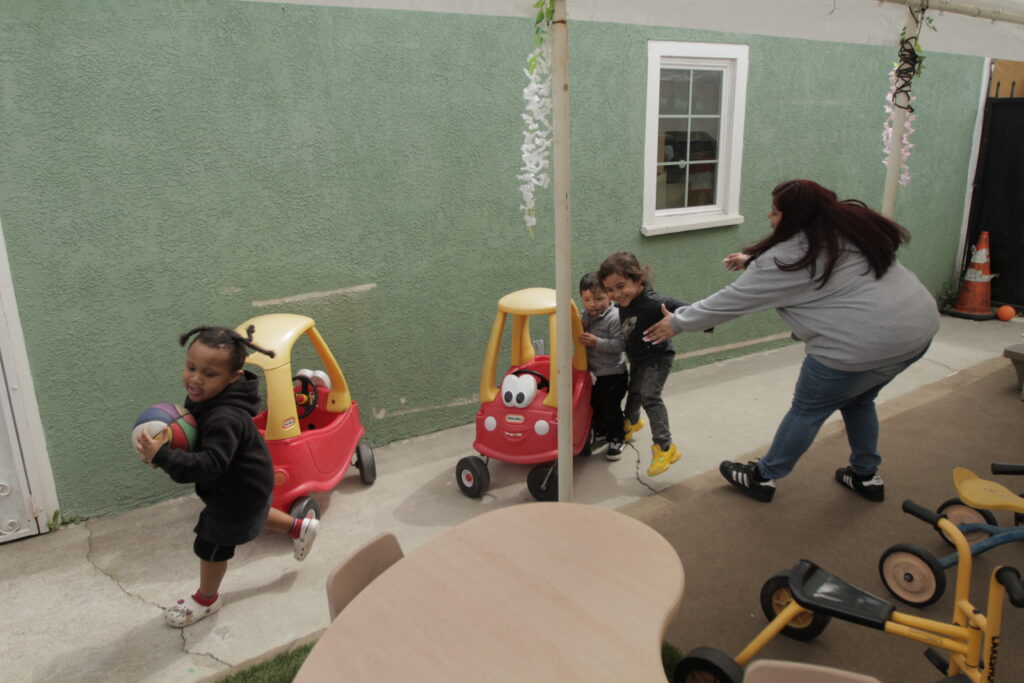As many Los Angeles families with young families know well, juggling child care, work and education is a major challenge — one that is exacerbated by the shortage of early childhood educators.
Organizations like the Los Angeles Education Partnership (LAEP) are here to help. With deep roots in L.A. and a 40-year history of investing in the future of children and their families to advance educational equity, the nonprofit organization addresses critical early education needs across the county.
LAEP’s Ready2Teach — a pilot program supported by the Conrad N. Hilton Foundation’s Early Childhood Development initiative — provides a unique solution to the child care shortage. The one-year, “earn-and-learn” program is designed to increase the number of qualified infant and toddler teachers across Los Angeles County, with a focus in South LA neighborhoods. Participants obtain a California Child Development Associate Teacher permit and can enter the workforce more prepared to nurture the next generation of early learners.
Ready2Teach program director Elsa Leal describes the symbiotic model: Participants in the program engage in coursework, paid apprenticeships, and training and mentorship. Additional wrap-around supports like laptop loans and transportation vouchers are also available. Meanwhile, childcare providers benefit from having the additional help, and their facilities are able to take on more children. This, in turn, helps families get the childcare they need to be able to go to work and school.
“I want to open my own business,” says Jacquelyn, an apprentice with LAEP. When asked about the most important lessons she has learned during her time working at a family childcare center, she says “Patience! And being open-minded, because there’s different age groups.”

High-quality early education is a game-changer for young children, particularly those from low-income families. Research shows that this education prevents academic achievement gaps, while a lack of access leaves children unprepared for kindergarten and, over time, less likely to graduate from high school.
“We need teachers to know about brain development, child development — so they know the theory behind it, but they also have the hands-on experience [of] how to be a classroom teacher,” says Leal. “They’re ready by the time they finish this project.”